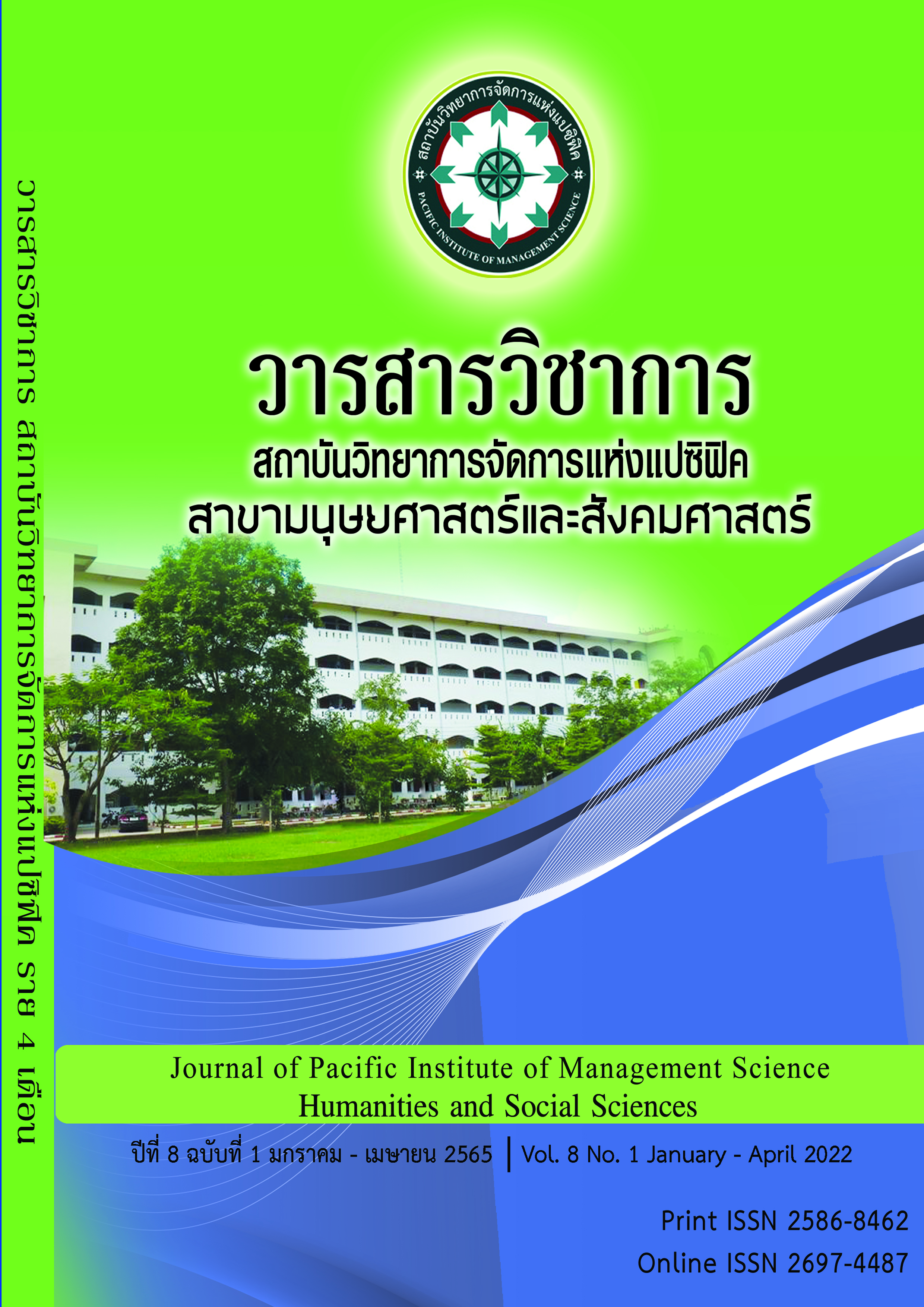The Develop Achievement of English Vocabulary Pronunciation Reading by learning management based on using the jolly Phonics of Prathom Suksa 3 Students at Anuban Phranakhon Si Ayutthaya School
Keywords:
The Develop Achievement, English Vocabulary Pronunciation Reading, learning management based on using the jolly PhonicsAbstract
The purposes of this research were to 1)Develop Learning Management of English vocabulary Pronunciation Reading by learning management based on the philosophy of Jolly Phonics of Prathom Suksa 3 Students at Anuban pranakhon si Ayutthaya School standardized criteria efficiency and 2). to compare Achievement of English vocabulary pronunciation reading of Prathom Suksa 3 Students at Anuban pranakhon si Ayutthaya School before and after being taught with the phonics teaching method.
The research sample consisted of 33 Prathom Suksa 3 Students at Anuban pranakhon si Ayutthaya School during the 2019 academic year, obtained by cluster sampling. The employed research instruments consisted of (1) 16 learning management plans for teaching English vocabulary pronunciation reading by learning management based on the philosophy of Jolly Phonics method, each of which taking one hour of instruction; (2) an English vocabulary pronunciation reading test
The research finding showed that 1) the efficiency of learning management based on the philosophy of Jolly Phonics of Prathom Suksa 3 students at Anuban pranakhon si Ayutthaya School, the efficiency of the teaching and learning process was 85.74 and the result effectiveness of 84.17 shows that the efficiency of learning management was 85.74. /84.17 which meets the criteria of 80/80 2) the post-learning English pronunciation reading of Prathom Suksa 3 Students at Anuban pranakhon si Ayutthaya School was significantly higher than their pre-learning counterpart ability at the .05 level.
References
กระทรวงศึกษาธิการ. (2551). การจัดการเรียนรู้กลุ่มสาระการเรียนรู้ภาษาต่างประเทศตามหลักสูตรแกนกลาง การศึกษาขั้นพื้นฐาน พุทธศักราช 2551. กรุงเทพฯ : กรมวิชาการ.
จีรนันท์ เมฆวงษ์. (2547). การพัฒนาความสามารถในการออกเสียงภาษาอังกฤษและความคงทนในการเรียนรู้ คำศัพท์ด้วย วิธีการสอนแบบโฟนิกส์. เชียงใหม่ : มหาวิทยาลัยเชียงใหม่.
ดวงใจ ตั้งสง่า. (2555-2556). ชวนลูกเรียนรู้ภาษาอังกฤษ ตอนโฟนิกส์คืออะไร ทำไมต้องเรียน [Online]. form http://taamkru.com/th/
พัชรินทร์ ลันซาง. (2555). การพัฒนาความสามารถในการอ่านออกเสียงภาษาอังกฤษด้วยวิธีโฟนิกส์ของ นักเรียน ชั้นประถมศึกษาปีที่ 1. ศิลปศาสตร์มหาบัณฑิต: มหาวิทยาลัยราชภัฏอุดรธานี.
วันเพ็ญ เดียวสมคิด. (2551) การสอนภาษาไทยเป็นภาษาที่สอง ตามแนวการสอนแบบโฟนิกส์ เพื่อพัฒนา ความพร้อมทางภาษาไทย ของนักเรียนโรงเรียนอนุบาลบ้านปลาดาว อำเภอแม่แตง จังหวัดเชียงใหม่. การค้นคว้าอิสระ บัณฑิตวิทยาลัย มหาวิทยาลัยเชียงใหม่.
สุนันทา มั่นเศรษฐวิทย์. (2544). แผนการจัดการเรียนรู้ที่เน้นผู้เรียนเป็นสำคัญ. ชัยนาท : ชมรมพัฒนาความรู้ด้านระเบียบกฎหมายและพัฒนาวิชาชีพครู.
อินทิรา ศรีประสิทธิ์. (2551). เยาวชนไทยติดอินเตอร์เน็ต เกม เพราะอ่านภาษาอังกฤษ บนเว็บไม่ออก.มติชน. หน้า 26.
Harris, J. Albert; & Sipay.R.Edward. (1979). How To Teach Reading. New York: Longman
Jollylearning. (2008).Jolly Phonics. Retriveved May 16, 2008 from URL: http://www.jollylearning.co.uk
Lloyd, Sue. (2004). The Phonics Handbook. Essex: Jolly Learning Ltd.
Downloads
Published
Issue
Section
License
Copyright (c) 2022 Pacific Institute of Management Science

This work is licensed under a Creative Commons Attribution-NonCommercial-NoDerivatives 4.0 International License.
บทความที่ได้รับการตีพิมพ์เป็นลิขสิทธิ์ของ สถาบันวิทยาการจัดการแห่งแปซิฟิค
ข้อความที่ปรากฏในบทความแต่ละเรื่องในวารสารวิชาการเล่มนี้เป็นความคิดเห็นส่วนตัวของผู้เขียนแต่ละท่านไม่เกี่ยวข้องกับสถาบันวิทยาการจัดการแห่งแปซิฟิค และคณาจารย์ท่านอื่นๆในสถาบันฯ แต่อย่างใด ความรับผิดชอบองค์ประกอบทั้งหมดของบทความแต่ละเรื่องเป็นของผู้เขียนแต่ละท่าน หากมีความผิดพลาดใดๆ ผู้เขียนแต่ละท่านจะรับผิดชอบบทความของตนเองแต่ผู้เดียว







